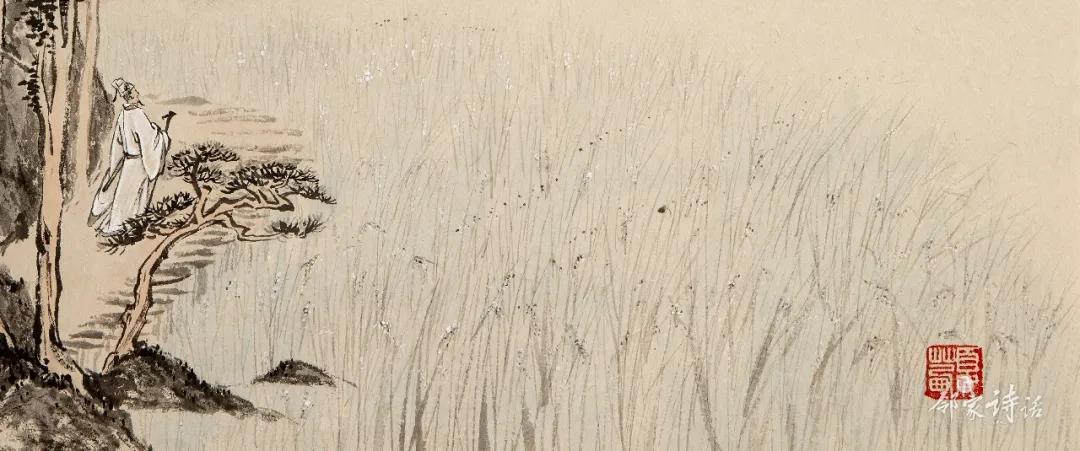The Moon over the West River-A Summer Night on My Way Home from the Yellow Sand Ridge
- Poetry of Xin Qiji

Startled by magpies leaving the branch in moonlight;
I hear cicadas shrill in the breeze at midnight.
The ricefields'sweet smell promises a harvest great,
I listen to the frogs'croak when the night grows late.
Beyond the clouds seven or eight stars twinkle;
Before the hills two or three raindrops sprinkle.
There is an inn beside the Village Temple.Look!
The winding path leads to the hut beside the brook.
The Yellow Sand Ridge was situated to the west of Shangrao,Jiangxi,where the poet lived when he could not fulfil his ambition to fight against the Junchen aggressors.This lyric depicts a nocturnal journey of the poet who was startled and surprised to see magpies leaving the branch in moonlight and glad to smell the sweet smell of the ricefields and to hear the frogs croak which announced a good harvest.and then again surprised by the coming rain and glad to find an inn by the side of the brook.
明月别枝惊鹊,清风半夜鸣蝉。
稻花香里说丰年,听取蛙声一片。
七八个星天外,两三点雨山前。
旧时茅店社林边,路转溪桥忽见。
- Why Chinese poems is so special?
- The most distinctive features of Chinese poetry are: concision- many poems are only four lines, and few are much longer than eight; ambiguity- number, tense and parts of speech are often undetermined, creating particularly rich interpretative possibilities; and structure- most poems follow quite strict formal patterns which have beauty in themselves as well as highlighting meaningful contrasts.
- How to read a Chinese poem?
- Like an English poem, but more so. Everything is there for a reason, so try to find that reason. Think about all the possible connotations, and be aware of the different possibilities of number and tense. Look for contrasts: within lines, between the lines of each couplet and between successive couplets. Above all, don't worry about what the poet meant- find your meaning.
- Seven Poems on Kaiyuan Era: Dancing Horses
- Midnight Song of the Four Seasons: Summer
- In Reply to Pimei’s Poem Written During Illness
- Ten Odes on Tea Utensils: Tea Vale White Lotus
- Spring Thoughts II
- The Arcane Celadon of Yue Kiln
- Lodging by Riverside Tower
- Along the River for Flowers Alone I
- The Cottage by the Stream
- The Lotus-Gathering Song